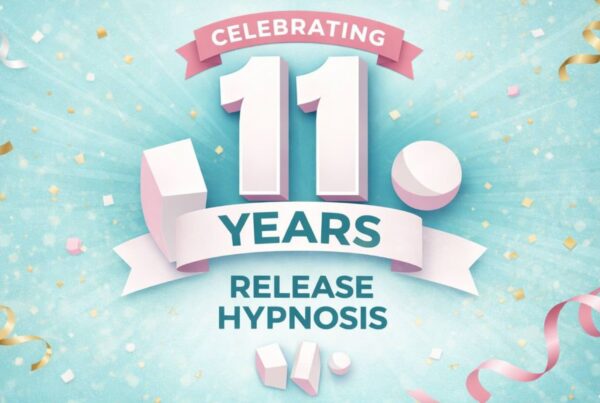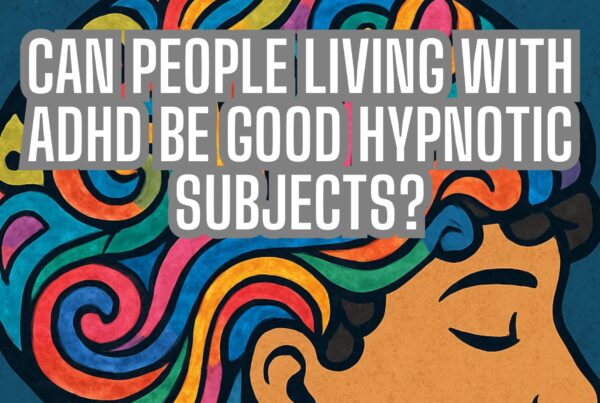Do You Need to Believe in Hypnosis for It to Work?
Do You Believe In Hypnosis?
One conversation that is often had is when people say that they cannot be hypnotized. The legitimacy of hypnosis is sometimes doubted or they believe that they are too strong-minded for it to work. It is not yet understood by them that hypnosis is a natural phenomenon. The bigger question to ask is if hypnosis requires belief to be effective.
What is Hypnosis?
When the word “hypnosis” is heard by most people, they often think of stage performances in which individuals are made to perform silly or embarrassing actions. However, hypnosis is much more than that. It is a therapeutic technique that can aid individuals in overcoming various issues, such as anxiety, depression, and phobias.
There are as many different definitions of hypnosis as there are therapists who practice it. It is believed by many that hypnosis is linked to relaxation, but that is not necessarily true. Although many may find hypnosis relaxing, hypnosis is not synonymous with relaxation.
Hypnosis has sometimes been defined as a human condition that entails focused attention (the selective attention/selective inattention hypothesis, SASI), reduced peripheral awareness, and an enhanced capacity to respond to suggestion. Although some may debate whether it is a “trance state” or not, many individuals may experience hypnotic phenomena as such.
What Happens During a Hypnotherapy Session?
During a hypnotherapy session, the client is guided into hypnosis by the hypnotherapist, where their subconscious mind becomes more accessible. It is through this access to the subconscious that hypnotherapy can be effective in assisting individuals in making positive changes in their lives.
Do You Need to Believe in Hypnosis for It to Work?
One of the most frequently asked questions about hypnosis is if a person needs to believe in it for it to be effective. The short answer is no. Several studies have demonstrated that a person’s belief in hypnosis has little to no impact on its effectiveness.
For instance, a study published in the International Journal of Clinical and Experimental Hypnosis revealed that hypnosis effectively reduced pain in patients, regardless of whether or not they believed in hypnosis. Similarly, another study published in the American Journal of Clinical Hypnosis showed that hypnosis reduced anxiety in patients, irrespective of their beliefs about hypnosis.
It is essential to note that while belief in hypnosis may not be necessary for it to work, a person’s willingness to participate in the hypnotherapy session is critical. If a person is resistant or skeptical of hypnosis, it may be more challenging for the hypnotherapist to guide them into a state of deep relaxation and suggestibility.
How Does Hypnosis Work?
If belief in hypnosis is not necessary for it to work, then how does it work?
Although the exact mechanism behind hypnosis remains unclear, several theories have been proposed.
One theory suggests that hypnosis operates by bypassing the critical factor of the conscious mind, which is the part of the mind that filters and analyses information. The hypnotherapist can access the subconscious mind by bypassing the critical factor, where many of our beliefs and behaviors are rooted.
Another theory posits that hypnosis works by creating a state of focused attention and concentration. By concentrating intently on a particular issue or problem, the client can better access their inner resources and find solutions to their problems.
The Power of the Subconscious Mind
Regardless of the exact mechanism behind hypnosis, it is clear that the subconscious mind plays a powerful role in our thoughts, beliefs, and behaviors. The subconscious mind is like a vast ocean beneath the surface of our conscious awareness, and it is through hypnosis that we can access this ocean and make positive changes in our lives.
For example, if a person is struggling with anxiety, hypnosis can help them access the subconscious mind and identify the root cause of their anxiety. Once the root cause is identified, the hypnotherapist can help the client reframe their beliefs and thought patterns in a more positive and empowering way.
Overcoming Resistance to Hypnosis
Although belief in hypnosis isn’t necessary for it to work, some people may remain resistant or skeptical of hypnosis. To overcome resistance, approaching the process with curiosity and an open mind can be helpful. It may also be beneficial to seek out a hypnotherapist who has experience working with clients that have similar presenting issues.
Additionally, hypnosis can be effective for non-believers as well. A study conducted by Kirsch and colleagues in 2000 found that hypnosis reduced pain even in individuals who did not believe in hypnosis. This implies that hypnosis can still work for individuals who are skeptical or do not believe in its effectiveness.
It’s crucial to understand that hypnosis is not a magic trick or a form of mind control. Hypnosis is a therapeutic tool used to help individuals access their own inner resources and make positive changes in their lives. The hypnotherapist serves as a guide, helping the client to access their subconscious mind and make changes that align with their goals and desires.
No Need To Believe In Hypnosis For It To Work
In short, belief in hypnosis is not necessary for it to work.
While belief can certainly enhance the effectiveness of hypnosis, research has shown that it is not a prerequisite for success. Hypnosis can be used to help individuals overcome a wide range of issues, from anxiety and phobias to chronic pain and insomnia. As with any therapeutic tool, the success of hypnosis depends on many factors, including the skill and experience of the hypnotherapist, the motivation and openness of the client, and the specific issue being addressed.
Release Hypnosis Melbourne Hypnotherapy
Since 2015, Lawrence Akers has been working under the name Release Hypnosis offering Hypnotherapy and ACT based work to the people of Melbourne or an online service. Based on St Kilda Rd, Release Hypnosis is an easy and convenient location to get to and accessible by the ANZAC station train and tram stop. Release Hypnosis can help with a wide range of presenting issues, and I offer a free 30 minute no obligation discovery call for those who are unsure if hypnotherapy is the right way forward for them.
Book Your FREE 30 Minute Consultation With Release Hypnosis NOW!
You may also like to read:
How to Harness the Power of Your Subconscious Mind for Positive Change
Can’t Visualise in Hypnosis? Here’s What You Can Do Instead.
Release Hypnosis Celebrates 8 Years!
What Is The Success Rate of Hypnosis?








